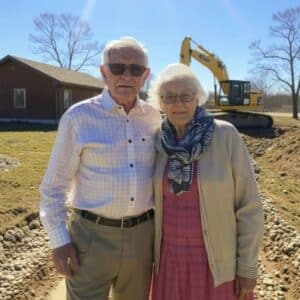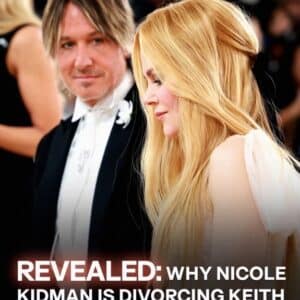CPS knocked on my door on a quiet Tuesday, and my stomach fell straight through the floor. I’d let my eight-year-old, Noah, play in the courtyard park below our balcony like always—where I could see him, where he knew to look up and wave. Still, the worker stepped in with a clipboard and a careful smile and asked to speak to him alone.
I paced the kitchen until she came back, eyes shining like she’d been holding her breath. “He’s okay,” she said softly. “But he mentioned a man in a red cap—sunflower seeds for the birds, same bench every day. Do you know him?”
I didn’t. Noah isn’t allowed to talk to strangers. I watch him every time he’s outside. The worker nodded like she’d expected that. “The man who kept calling us about neglect?” she added. “It’s the same man. He wasn’t trying to hurt him. He thought no one was watching.”
Noah looked up from his dinosaur book and asked if we could make lemon cookies later. The caseworker smiled and said she’d be closing the file, but I might want to talk to my son about the man. “I think he matters,” she said.
Over apple slices, I asked his name. Noah shrugged. “He never said. He tells me stories and lets me draw in his notebook.” He chewed, thinking, then added, “He said when you lose someone you love, you sometimes look for them in other people. He had a boy once. His name was Noah too.” He said it so simply my chest hurt.
That night I went down to the bench. No red cap. Just a scatter of sunflower seed shells under the seat. I checked every day after that until Thursday, when he was suddenly there—older than I’d pictured, cap frayed, hands gentle as he fed the pigeons.
“Mind if I sit?” I asked.
He startled, then smiled. “Of course.”
“You’re Noah’s mom,” he said after a moment. “He’s a good kid. Talks a lot—in the best way.”
“Why did you report me?” I asked.
He flushed. “I’m sorry. I saw a boy alone and panicked. I didn’t see you waving from above. I only saw… what I lost.” He took a breath, bracing. “My son died at nine. Cancer. I lost my wife a year later. I come here because it’s where the noise stops. Your boy always says hello. Asks if I’ve eaten. I hadn’t, most days.”
I didn’t have the right words. “Do you still want to talk to him?” I asked.
“If that’s okay.”
We started small. Lemonade on the balcony. Paper airplanes that actually flew straight. He taught Noah chess and how to listen for the wind. His name was Mr. Whitaker, but he told us to call him Hank. His wife, Linda, had baked pies for everyone on their block. His son—also Noah—had the same lopsided smile as mine. Sometimes he brought photographs. The resemblance was eerie enough to make me blink twice.
Sunday afternoons, he’d sit with us while we baked Noah’s favorite lemon cookies. He’d hold his iced tea and look out over the park. “This,” he’d say, “feels like home again.” The neighbors who’d eyed me for “letting a kid run wild” started waving on their walks. The story of the red cap softened the edges around all of us.
Then winter hit, and Hank’s cough didn’t leave. A hospital. The words no one wants to hear: “advanced stage” and “not much time.” He squeezed my hand and said he’d already gotten more time than he ever expected. We brought him home. Hospice set up a bed by the window. Noah drew pictures every morning—a bench, pigeons, two boys with airplanes—and taped them to the wall. I made his favorite soup, even if he only managed a spoonful.
One night he asked, “Did I do right? Letting myself care again?”
“You gave us more than we knew to ask for,” I said. “That’s the best kind of right.”
He passed two mornings later, holding Noah’s newest drawing. His will was simple—a box of keepsakes, including the red cap. The park bench got a small bronze plaque a month after:
In Memory of Hank “Grandpa” Whitaker
Friend. Father. Believer in Second Chances.
The pigeons still come for seeds. Kids still launch paper airplanes that drift like slow birds.
A few weeks later, a letter arrived with no return address. The CPS worker had written it by hand. She said she couldn’t tell me then, but when she spoke to my son he’d said, “My mom loves me like sunshine, but the man in the red cap loves me like a hug you forgot you needed.” She wrote that she’d been burned out and cynical that day. “You saved a boy. He saved a man. And together, you saved each other.”
Sometimes Noah and I sit on Hank’s bench and talk about kindness—how it doesn’t always look the way you expect, how someone else’s broken heart can fit perfectly beside your own. What looked like a mistake—a report, a knock at the door—turned into a doorway.
Love doesn’t run out. It changes shape. It finds new places to land. If this finds you, be gentle with the person on the bench, the kid with the paper airplane, the mom waving from the balcony. You never know whose red cap is stitching a family back together.





